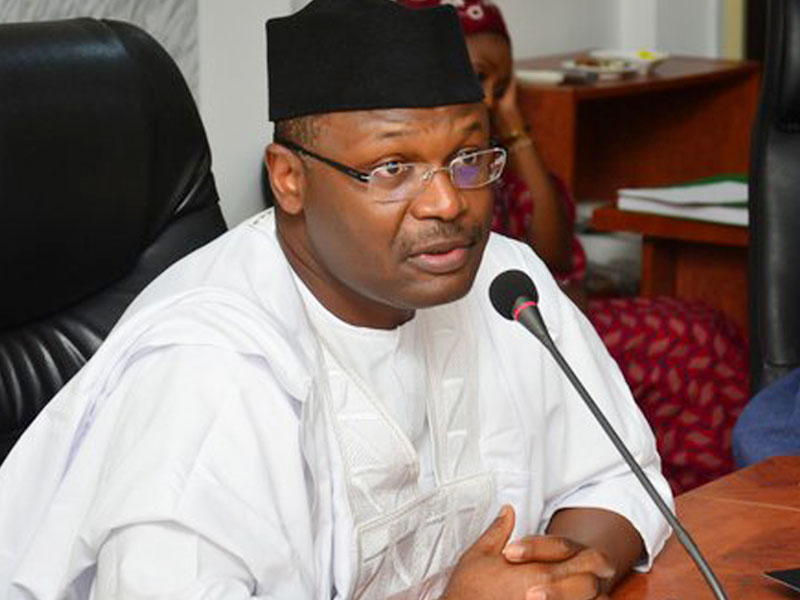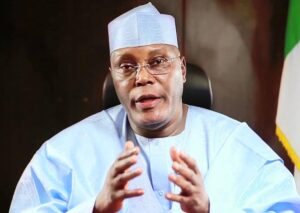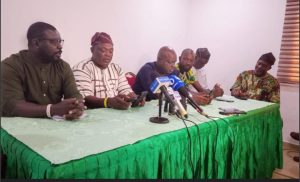
By Mahmud Abubakar
Going by the unending gymnastics with the Independent National Electoral Commission (INEC) over the issue of the server promised by the electoral body for central collation of result which has emerged at the Presidential Election Tribunal, it seems that the present INEC is not comfortable with the fact that people are holding it responsible with the organization of the 2019 polls.
Developments at the tribunal on the question of the server, particularly the demand by Atiku Abubakar and his party, the People’s Democratic Party (PDP), to be allowed to examine the server to determine some of the results declared by INEC, have shown that the election authority is not comfortable with whether it procured a server or even used it. Today, INEC denies that it had a server, another day; it says that indeed it had one but that votes cast at the presidential elections were not transmitted to the latter. In another breadth, it claims that it only experimented with server.
Something is indeed wrong with INEC and it seems that within its management there was little or no coordination before or during the elections. It could also be that some interested parties in INEC are telling bare-faced lies to Nigerians whose tax money was used to organize the elections as well as pay regular salaries to officials of the Commission.
The INEC as presently constituted is a drain pipe as Nigerians who voted in the 2019 polls and had high hopes that their votes would count seem to have been shortchanged because the electoral umpire cannot categorical state its position on a number of issues critical to a free, fair and credible election.
The back and forth argument over the issue of the server provided for and cash-backed for the 2019 elections and the uncertainty of INEC’s position makes a laughing stock of Nigeria, the famed giant of Africa and the administration of Muhammadu Buhari which has tried strenuously to put on the toga of an anti-corruption government. In fact, it is as if Nigeria is not a serious country having been portrayed as a country incapable of organizing free and fair elections.
The recent report on the elections by the European Union Observer Mission is also damning to a large extent. In summary, the report aligns with those Nigerians who maintain that the election was anything but free, fair and credible. The EU final report went as far as calling for far-reaching electoral reforms which the Buhari government has vowed to implement. It is doubtful however, whether the promise of the government can be believed when it keeps people like those currently in INEC on their jobs.
INEC seems to have organized a half-hearted election that a concerned Nigerian recently opined that given the opportunity, the Commission would deny that it was in charge of the 2019 polls that has caused distress and doubt.
Nigerians were given the short end of the stick by INEC. During the elections, many parts of the country were like war theatres as political thugs under the control of influential political leaders were unleashed on innocent citizens in the bid to force them to vote in a particular way for a particular set of politicians and parties. In all this, the ruling All Progressives Congress (APC), was complicit and INEC looked the other way. Several deaths of innocent Nigerians occurred. The EU report puts it at 58. Other reports say the figure is higher, perhaps reaching a hundred. No election anywhere in the world can be described as free, fair and credible if innocent people died in the process except for those who died in automobile accidents!
The argument on the server, the inability of INEC to allow the election petitioners to access and examine it, means that the result declared by INEC from the president down is not believable and Nigerians may not have got what they expected and deserved in terms of those who occupy public offices today.
In all sincerity, a review of the preparations for the elections and developments in the polity before the polls indicates that the all-important election was designed to fail by those whose duty it was to ensure that Nigerians got free, fair and peaceful elections.
The most important sign that the elections were designed to fail and end in controversy was when President Buhari refused to sign into law, the amended Electoral Act. That President Buhari failure to sign the Act created apprehension among Nigerians and foreigners alike that the President and his party wanted to make organizing the election difficult for INEC which is the reason for the commission’s lack of confidence in explaining its stewardship of the elections.
This is where the Judiciary comes in as the last hope for justice. All Nigerians including those who are being accused of doctoring votes of the opposition candidate and his party in the February 23, 2019 presidential election are now at a loss and cannot hold their heads high in celebration of their supposed victory.
In view of the emerging evidence of collusion, lies and outright falsehood about the conduct of the elections and the release of results, everyone now looks up to the Judiciary to determine the truth about who won that election. Also, in many parts of the country, the environment was not conducive for people to vote. Thus, instances of low participation and no-voting were very high casting doubt on the credibility of the election. And with identified violence in as many as 20 states of the federation, one wonders how any credible election could be possible in an atmosphere of violence.
Thus it behooves on the Judiciary to ensure that the cause of justice is served so that those who have come before it would confidently say, when its job is done that the truth has come out after a thorough examination of arguments by counsels to the litigants and the evidences adduced.
Mahmud Abubakar, a Sociologist and Public Affairs Analyst wrote from Bauchi.




纸飞机中文版下载 提供自定义主题和界面选项,用户可以根据喜好进行设置。
Go Live – Real Dealers, Real Wins, Real Excitement!Lodibet